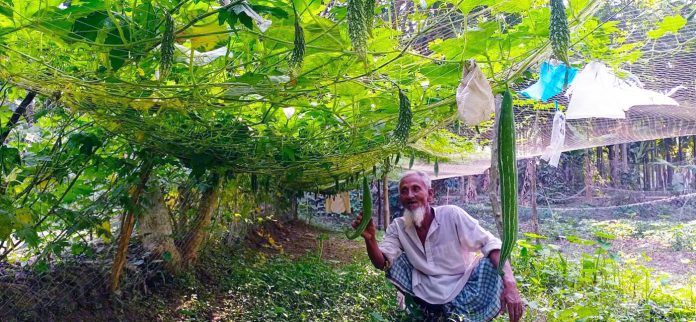The Prosperity programme has undertaken a series of innovative initiatives to promote homestead vegetable gardening. One is to set up ‘Dadur Pushti Bagan’ in an elderly person’s house by the Prosperity’s Adolescent Club members across the working areas. This unique vegetable garden is set up by the members of the Adolescent Girls’ Club on the unused land of elderly people’s houses, where the club is centred.
The club members, mostly schoolgoing teen girls, in different working areas have already set up vegetable gardens on the premises of elderly persons. As part of their voluntary service, they take care of the whole process starting from bed preparation.
With technical and financial support from the programme, the club members then sow the seeds or plant the seedlings. Technical officers and assistant technical officers of livelihood, nutrition and community mobilisation components visit the garden in rotation to provide technical assistance and ensure the quality of the vegetable garden.
The club members also provide support in selling the surplus vegetables after household consumption. The proceeds from the sale go to the elderly person’s house.
‘We are proud to have set up the vegetable garden on Dadu’s (elderly person) house. It not only helps the household to meet nutritional needs. It is also a rare opportunity for us to learn from the activity,’ said Dinara Akter Meem, member of a Kishori Club in Thakurgaon.
Considering the choice of the elderly person’s household and taking into account the climate vulnerability of the region the vegetables grown in these gardens include spinach, stem amaranth, water amaranth, red amaranth, taro/arum, ginger, turmeric, string bean, bitter gourd, okra and potato. Flowers like rose, zinnia, dahlia, cosmos and garland are also common features in the garden.
The initiative is expected to encourage extreme-poor people to take interest in vegetable gardening in their homestead or other unused land and meet the household’s nutritional needs.


